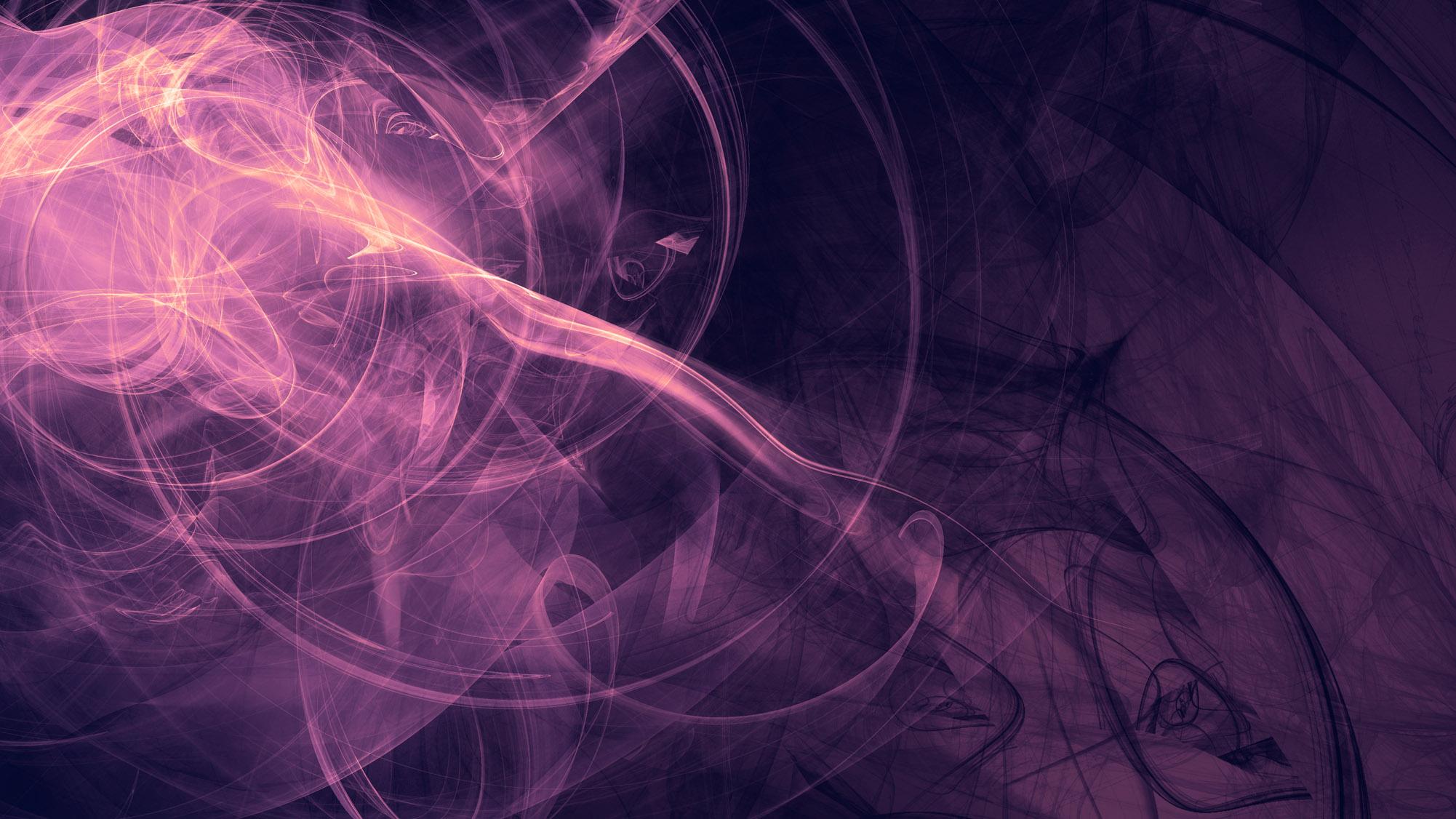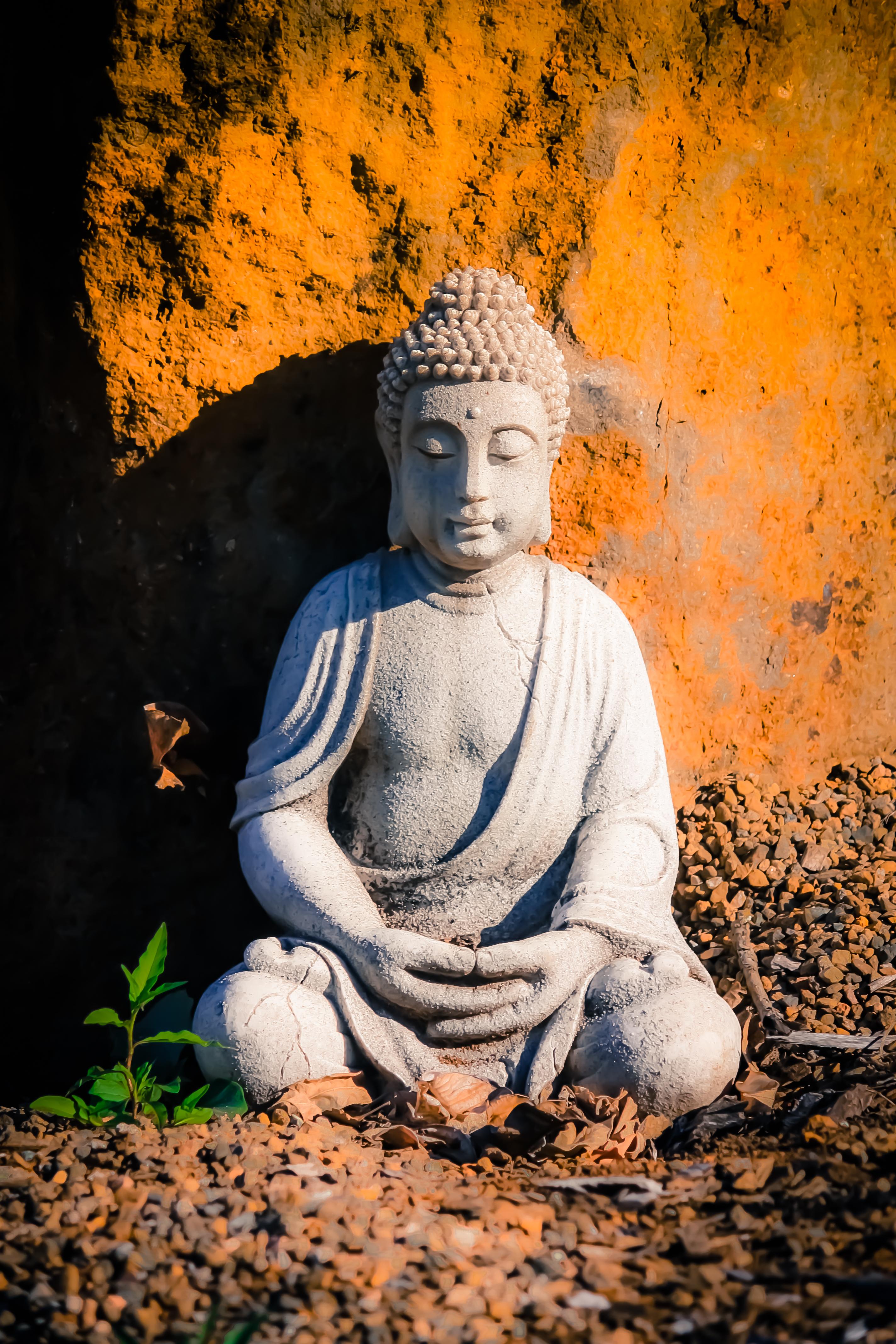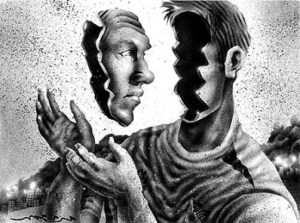I’ve recently been thinking a lot about change — personal change, how one changes over time both by choice and by happenstance. Honestly, this has been something I’ve thought about off and on over the years, as I studied psychology in school, but it has come to the forefront of my mind more in recent years due to my interest in Buddhism and the claims I’ve heard others around me make about how certain activities have changed them.
Actually, the issue came to a head a few years ago when pondering some others’ justifications for travelling. They spoke highly of how it changes you, but I didn’t see anything dramatically different about them. I started thinking on my own travels and my own life experiences with change. After much consideration, I came to the conclusion that we don’t understand well how change comes to be in our lives, and perhaps, that has to do with misperceptions of ourselves and our lives.
Change isn’t something that someone just has thrust upon them in a moment. One doesn’t simply see something, and all is done. I’ve been thinking of a good metaphor for this, and ultimately, the passive infliction of change from without seems akin to a wound that heals into a scar — a mark that’s made from an external force that is more or less permanent.
However, no other changes in life happen like that. We’re not simply some sort of soul/identity that is stained from without. We are bodies, processes, unfoldings — a human becoming, a developing person. An example? My dad died this year. The initial shock of it was sudden, external, and permanent. Certainly, but the deeper change that it’s had in my life has been a process. My brain, heart, and daily life are still processes of adaptation. There are stages to grieving, to making sense of the world again after a huge initial alteration like that. The event itself may be epic, but the change, the real impact is something more gradual. Change is like that — it’s a rebuilding of life, brick by brick, day by day.

This is how our very brains work. If we learn a new skill, it takes 1000s of hours (and apparently, it’s even more complicated than just sheer hours of time) of practice to master it. If one studies neuroplasticity even cursorily, it becomes clear that part of how we adapt as organisms is by building new synaptic connections when we encounter new challenges. These enhance our abilities, our understanding, our skill — but they take time, effort, material resources, and energy. Such is change: it is a new coming to be, a new formation of the universe. Another example? Our cat lost a leg this year due to cancer. We had to amputate it to avoid metastasis. At first, he could barely move and was awkward as hell. We had to bring food to him, but over time, he started meandering around and now is even almost as nimble as he once was. This is due to his brain taking time to rewire many of its sensorimotor connections to adapt to his new situation in life. Like my first example: the brute change is immediate, but the change in the day to day life, the new version of our beloved cat, is a more gradual process, one that he’s still undergoing.
I posit that all change in life, meaningful change that impacts one’s story, one’s existence, is like this. It’s a dynamic new entanglement with different circumstances. It can be one of mastery, where one takes repetitive engagement with something to build a new relationship with it and with life. My own experience with travel is like this: initial experiences impacted me. They expanded my perspectives, but the honing, the real meaning of it, came with living abroad, with spending hours and hours of time with people from other cultures, and with learning another language. Most of the initial experiences have fallen away as hazy memories, just like most others that have not stood the test of time, but the efforts to adapt and master have changed me forever.
Sometimes, the change is more passive. A new job or a new situation carries us along, against maybe our interest or affirmation, but in those cases, we still adapt — living through the banal grind, as it were — and that changes us as well over time. The numerous hours of going through the motions can kill our resolve, make us cynical, one way of thinking about how we change into old age.
“What about trauma?” — you might ask and rightfully so. The event of trauma has an impact, but the ongoing efforts of the mind are where the change of trauma happens: the rehashing of the events over and over in mind, in its particularly intense experience with details that blast beyond any standard memory, or our minds’ ongoing efforts of self-protection through continually pushing the traumatic events out of mind. These adaptive engagements change our relationships with the world, and they change the wiring in our brains. The initial event is only complete in its destruction through the adaptation over time of trying to understand it, to live through it, and to survive beyond it. It presents one of the biggest changes of all — rebuilding meaning and trust in existence after all meaning that we had previously known has been shattered.
My point? Change is always an ongoing dynamic with the lives we’re embedded in. Traveling is just one peak experience among many. We could point to others: music, art, drugs, literature, religious revelation. All of these have their value for opening our eyes to new possibilities, but it’s not the eye-opening that is change, it’s the ongoing investment in (or possibly running away from — ongoing denial) the newly seen alternatives that changes us. It’s the time spent, the long-term relationship with these newfound discoveries, and the growing intimacy with them that is change. Also, what of the open-mindedness we have that leads us to these experiences in the first place? Isn’t that just as important to seeing something as new and exciting as the experience itself? However, ultimately, the way things come to fruition is through that sustained engagement. I can think of many phases I went through in my younger years that didn’t leave much of an impact despite initial enthusiasm. I didn’t engage with them long enough to build that loving or cynical relationship that is change.
Let these words stand, lest we forget that we are organic systems of change. Let us not forget as well how hard change can become due to the strong entanglements in certain ways of being, the ingrained patterns and habits, that we have developed over time. So much of who we “are” are these patterns that have developed: the fruition of change, karma. These are the ties that bind us, not a soul — some inherent personality. The deeper situations we are in, the thoughts we cultivate, we change and solidify into those. Most importantly, let us not forget that we are engines of change — we are not set beings, rather becomings. Confusion on this is our greatest existential balm but also our greatest delusion.
Peak experiences cannot be maintained, and when they pass, the habituated patterns and the underlying sense of separation remain intact.
Peak experiences may open up new possibilities, but they cannot do what a consistent practice or discipline does–instill a deep understanding that expresses itself in life. No quick fix exists. Milarepa, a great Tibetan folk hero who lived in mountain retreats, used to say that to glimpse what is ultimately true is not difficult, but to stabilize that understanding takes years of effort.
— From Wake Up to Your Life by Ken McLeod
Today we understand from scientific research that the human body operates through chemical and molecular processes. By their very nature these processes are in a state of constant, even chaotic change at the cellular level. As mentioned earlier, millions of cells are born and die in each passing second. There’s no solidity at the core. But in our ignorance we live as if the body were solid and unchanging at its core.
The poet W. H. Auden has said, “Our claim to own our bodies and our world / is our catastrophe.” How can we claim ownership of something that’s constantly changing? What does it tell us about the nature of the claim? A deluded mind believes a manifestation to be a thing-in-itself, whereas Buddhist teachings point out that a manifestation is an event. A thing is perceived by the deluded mind to be solid and self-abiding; an event is seen by a mind informed by prajna as a resultant outcome of a certain process. To see oneself truly and authentically, as an event–an ever-changing process–rather than a thing-in-itself is the greatest act of re-imaging.
— From The Heart of the Universe: Exploring the Heart Sutra by Mu Soeng
Priest Daokai of Mount Furong said to the assembly, “The green mountains are always walking; a stone woman gives birth to a child at night.”
Mountains do not lack the characteristics of mountains. Therefore they always abide in ease and always walk. Examine in detail the characteristic of the mountains’ walking.
Mountains’ walking is just like human walking. Accordingly, do not doubt mountains’ walking even though it does not look the same as human walking. The buddha ancestor’s words point to walking. This is fundamental understanding. Penetrate these words.
— From Treasury of the True Dharma Eye by Eihei Dōgen (trans. Kazuaki Tanahashi)










Recent Comments